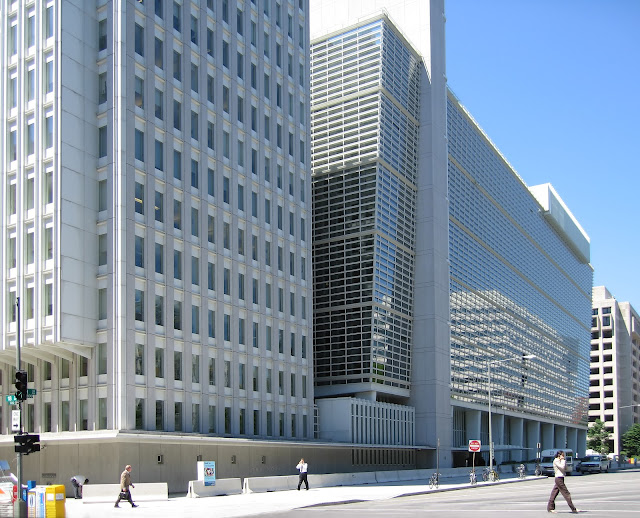Introduction
The World Bank is a prominent international financial institution that plays a crucial role in financing development projects around the world. With a primary goal of reducing poverty and promoting shared prosperity, the World Bank provides loans and grants to governments of poorer countries for capital projects. It consists of two institutions: the International Bank for Reconstruction and Development (IBRD) and the International Development Association (IDA). While the World Bank has faced criticism in the past, it has made significant progress in addressing social and environmental concerns. This article explores the World Bank's role in various aspects of development, its impact on developing countries and the environment, and its efforts to promote sustainability, gender equality, and climate resilience.
The World Bank's Role in Sustainable Development
The World Bank recognizes the importance of sustainable development in achieving long-term economic growth and poverty reduction. It aims to support countries in pursuing sustainable economic development through financial assistance, technical expertise, and policy advice. The institution focuses on promoting inclusive growth, social inclusion, and environmental sustainability in its projects.
One of the key areas where the World Bank has made efforts to promote sustainability is climate change. The institution acknowledges the urgent need to address climate change and its impacts on vulnerable communities. In 2016, the World Bank launched its Climate Change Action Plan, which outlines its commitment to helping countries mitigate and adapt to climate change. The plan includes targets for increasing climate finance, supporting renewable energy projects, and promoting sustainable agriculture practices. By prioritizing climate action, the World Bank aims to contribute to global efforts to reduce greenhouse gas emissions and build climate resilience.
Another aspect of sustainable development that the World Bank focuses on is gender equality and women's empowerment. The institution recognizes that gender inequality is not only a social issue but also an economic one. Studies have shown that empowering women can lead to increased productivity, improved health and education outcomes, and greater overall economic growth. In response, the World Bank has launched various initiatives aimed at promoting women's economic empowerment. One such initiative is the Women Entrepreneurs Finance Initiative (We-Fi), which provides financial and technical assistance to women-led businesses. Additionally, the Gender Equality Trust Fund supports projects that aim to close gender gaps in access to resources, opportunities, and services.
The World Bank's Role in Poverty Alleviation
Poverty reduction is at the core of the World Bank's mission. The institution provides financial assistance and technical expertise to governments of poorer countries to support their efforts in reducing poverty and improving living standards. The World Bank's projects focus on areas such as education, healthcare, infrastructure development, and private sector development.
In the field of education, the World Bank works with governments to improve access to quality education for all. It supports initiatives that aim to increase enrollment rates, improve learning outcomes, and enhance educational facilities. By investing in education, the World Bank aims to break the cycle of poverty and create opportunities for individuals to improve their lives.
Healthcare is another area where the World Bank plays a significant role in poverty alleviation. The institution supports countries in strengthening their healthcare systems, improving access to essential healthcare services, and addressing public health challenges. Through its projects, the World Bank aims to reduce maternal and child mortality rates, combat infectious diseases, and improve overall health outcomes.
Infrastructure development is another key focus area for the World Bank. The institution recognizes that adequate infrastructure is essential for economic growth and poverty reduction. It supports projects that aim to improve transportation networks, expand access to clean water and sanitation, enhance energy infrastructure, and promote sustainable urban development. By investing in infrastructure, the World Bank aims to create jobs, stimulate economic activity, and improve living conditions for communities.
The World Bank's Role in Conflict and Fragility
The World Bank also plays a crucial role in addressing conflict and fragility in developing countries. It recognizes that conflicts and fragility can hinder development progress and exacerbate poverty. The institution supports countries in building resilience, promoting peace, and addressing the root causes of conflict.
The World Bank provides financial and technical assistance to countries affected by conflict and fragility, helping them rebuild their economies, strengthen institutions, and promote social cohesion. It supports initiatives that aim to create economic opportunities, improve governance and accountability, and foster social inclusion. By investing in conflict-affected and fragile states, the World Bank aims to promote stability, reduce poverty, and prevent the recurrence of conflicts.
Read Also: Eagle Insurance: Protecting What Matters Most
The World Bank's Impact on Developing Countries
The World Bank's activities have had a significant impact on developing countries. Through its financial assistance, technical expertise, and policy advice, the institution has helped countries implement development projects, improve living standards, and reduce poverty.
In the field of education, the World Bank has supported countries in expanding access to education and improving learning outcomes. Its projects have contributed to increased enrollment rates, reduced gender disparities in education, and improved educational facilities. By investing in education, the World Bank has helped countries build human capital and create opportunities for individuals to escape poverty.
In healthcare, the World Bank's support has enabled countries to strengthen their healthcare systems, improve access to essential services, and address public health challenges. Its projects have contributed to reduced maternal and child mortality rates, improved immunization coverage, and increased access to healthcare facilities. By investing in healthcare, the World Bank has helped countries improve health outcomes and enhance the well-being of their populations.
Infrastructure development is another area where the World Bank's impact has been significant. Its support has enabled countries to expand access to transportation networks, clean water, sanitation facilities, and energy infrastructure. By investing in infrastructure, the World Bank has helped countries stimulate economic growth, create jobs, and improve living conditions for communities.
The World Bank's Impact on the Environment
While the World Bank has made efforts to promote sustainability, it has also faced criticism for its impact on the environment. Critics argue that the institution's focus on economic growth and infrastructure development often comes at the expense of social and environmental considerations.
The World Bank has recognized these concerns and has taken steps to address them. In 2018, the institution introduced a new Environmental and Social Framework (ESF) to guide its investments and ensure that projects are designed and implemented in a socially and environmentally sustainable manner. The ESF emphasizes the importance of stakeholder engagement, social inclusion, and environmental sustainability in project design and implementation. By integrating environmental and social considerations into its projects, the World Bank aims to minimize negative impacts on the environment and local communities.
The World Bank's Efforts to Promote Transparency and Accountability
Transparency and accountability are essential principles for the World Bank. The institution has made efforts to increase the availability of information about its projects and activities, as well as to strengthen its grievance redress mechanisms. This is aimed at ensuring that affected communities have access to information and avenues for recourse if they are adversely affected by World Bank-funded projects.
The World Bank has implemented various measures to enhance transparency, such as publishing project-related information on its website, conducting public consultations, and engaging with civil society organizations and local communities. It has also established independent accountability mechanisms, such as the Inspection Panel and the Compliance Advisor Ombudsman, which provide affected communities with channels to raise concerns and seek redress.
Frequently Asked Questions (FAQs):
Q: What is the World Bank's role in climate change?
A: The World Bank recognizes the urgent need to address climate change and its impacts on vulnerable communities. It supports countries in mitigating and adapting to climate change through financial assistance, technical expertise, and policy advice. The institution aims to increase climate finance, support renewable energy projects, and promote sustainable agriculture practices.
Q: How does the World Bank promote sustainable development?
A: The World Bank promotes sustainable development by focusing on inclusive growth, social inclusion, and environmental sustainability in its projects. It supports initiatives that prioritize climate action, gender equality, education, healthcare, infrastructure development, and private sector development.
Q: What is the World Bank's role in poverty alleviation?
A: Poverty reduction is at the core of the World Bank's mission. It provides financial assistance and technical expertise to governments of poorer countries to support their efforts in reducing poverty and improving living standards. The World Bank's projects focus on areas such as education, healthcare, infrastructure development, and private sector development.
Q: How does the World Bank address conflict and fragility?
A: The World Bank plays a crucial role in addressing conflict and fragility in developing countries. It provides financial and technical assistance to countries affected by conflict and fragility, helping them rebuild their economies, strengthen institutions, and promote social cohesion. The World Bank supports initiatives that create economic opportunities, improve governance, and foster social inclusion.
Q: What is the World Bank's impact on developing countries?
A: The World Bank's activities have had a significant impact on developing countries. Through its financial assistance, technical expertise, and policy advice, the institution has helped countries implement development projects, improve living standards, and reduce poverty. Its support in areas such as education, healthcare, and infrastructure development has contributed to increased access to services, improved outcomes, and enhanced economic growth.
Q: How does the World Bank address environmental concerns?
A: The World Bank has recognized the importance of addressing environmental concerns. It has introduced an Environmental and Social Framework (ESF) to guide its investments and ensure that projects are designed and implemented in a socially and environmentally sustainable manner. The ESF emphasizes stakeholder engagement, social inclusion, and environmental sustainability in project design and implementation.
Conclusion
The World Bank plays a critical role in financing development projects around the world. While it has faced criticism in the past, the institution has made significant progress in addressing social and environmental concerns. By adopting a more sustainable and inclusive approach to development, the World Bank has the potential to make a positive impact on poverty reduction, gender equality, and climate resilience. However, continued efforts will be needed to ensure that the institution remains responsive to changing global challenges and accountable to the communities it serves.

